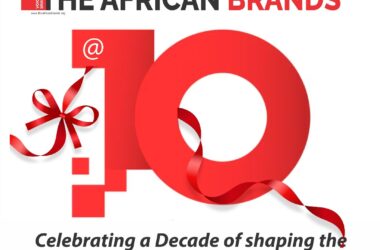By Godwin Anyebe
The Nigerian economy is facing one of its most challenging periods in recent history, with the naira’s continued devaluation serving as a stark reminder of the nation’s economic fragility. Once a symbol of stability in West Africa, the naira has lost significant value against major global currencies, plunging millions of Nigerians into deeper financial hardship and eroding national wealth.
The Slide of the Naira
The naira’s downward spiral is not a recent phenomenon; it has been a gradual decline fueled by a series of economic missteps, global economic pressures, and domestic challenges. Over the past decade, the naira has suffered devaluation after devaluation, each time stripping away more of its purchasing power.
The latest devaluation, driven by a combination of factors including dwindling foreign exchange reserves, declining oil revenues, and high inflation, has pushed the naira to record lows. As of mid-2024, the exchange rate hovers around ₦900 to $1 on the parallel market, a significant drop from the ₦200 to $1 rate just a few years ago.
Impact on Nigerian Wealth
The devaluation of the naira has far-reaching consequences for the wealth and prosperity of Nigerians. With each devaluation, the value of savings held in naira diminishes. Ordinary citizens, who have painstakingly saved for years, find that their money now buys a fraction of what it once did. The erosion of purchasing power means that everyday goods and services, from food to education, have become increasingly unaffordable.
For businesses, the situation is equally dire. Import-dependent industries, which make up a significant portion of the Nigerian economy, are struggling to cope with the rising cost of goods. The cost of importing raw materials has skyrocketed, leading to higher production costs and, inevitably, higher prices for consumers. This has created a vicious cycle of inflation, where the weakening naira fuels further price increases, deepening the economic crisis.
A Bleak Future for Investments
Investors, both domestic and foreign, have become increasingly wary of the Nigerian market. The uncertainty surrounding the naira’s value has made long-term financial planning nearly impossible. For foreign investors, the risk of further devaluation makes Nigeria a less attractive destination for investment, despite the country’s potential and vast natural resources. This lack of confidence further exacerbates the economic downturn, as capital flight continues to erode the financial base of the economy.
For local investors, the devaluation has wiped out the value of investments in naira-denominated assets. Real estate, stocks, and bonds have all been negatively impacted, with returns in naira now worth far less when converted into stable foreign currencies. The middle class, once seen as a burgeoning segment of the population, is shrinking as wealth is rapidly eroded.
Government Response and Public Sentiment
The Nigerian government has attempted various measures to stabilize the naira, from introducing multiple exchange rates to restricting access to foreign currency for certain imports. However, these interventions have often been counterproductive, leading to greater inefficiencies and fueling corruption in the foreign exchange market.
Public sentiment is increasingly pessimistic. With trust in the government waning, many Nigerians are seeking alternatives to protect their wealth. Cryptocurrency adoption, despite government crackdowns, is on the rise, as people look for ways to hedge against further naira devaluation. Others are investing in foreign currencies or assets, further draining the country of its foreign reserves.
The Road Ahead
The path to reversing the naira’s fortunes is fraught with challenges. Economic experts suggest that fundamental reforms are needed to restore confidence in the currency. These include diversifying the economy away from oil dependence, implementing stringent fiscal policies, and fostering an environment that encourages investment and entrepreneurship.
However, these reforms require time, political will, and public support—three commodities that are in short supply. As the naira continues its downward trajectory, the window for meaningful intervention is closing, and the prospect of a recovery grows dimmer.
In the meantime, Nigerians must grapple with the harsh reality of a crippled currency. The devaluation of the naira is not just a financial issue; it is a profound economic and social challenge that threatens the very fabric of the nation. Without decisive action, the naira’s devaluation will continue to erode Nigerian wealth, leaving a legacy of poverty and economic stagnation in its wake.
Speaking to Business Time on this issue, as an economic expert, Oluwfem Fabemi, deeply concerned with the trajectory of Nigeria’s financial health said, “I find the continued devaluation of the naira to be a critical issue that demands urgent and comprehensive intervention. The naira, once a symbol of national pride, has now become emblematic of our economic challenges, and its decline is eroding the wealth of millions of Nigerians at an alarming rate.”
According to him, “the devaluation of the naira cannot be viewed in isolation. It is the result of a confluence of factors, both external and internal, that have converged to weaken our currency. On the external front, global economic shifts, particularly the volatility in oil prices, have had a profound impact. As a nation heavily reliant on oil exports, the decline in oil revenues has severely reduced our foreign exchange reserves, leaving the naira vulnerable.”
Further, he disclosed that, “internally, the situation is exacerbated by policy inconsistencies, corruption, and a lack of diversification in our economy. The government’s reliance on multiple exchange rates has created a breeding ground for inefficiency and speculative behavior, further undermining the stability of the naira. Moreover, the failure to diversify our economy beyond oil has left us exposed to the whims of the global market, with little buffer against external shocks.”
“The most immediate and painful consequence of the naira’s devaluation is the erosion of wealth for ordinary Nigerians. The currency’s decline has led to a sharp increase in inflation, making basic goods and services unaffordable for many. Savings, which should be a source of security, are rapidly losing value. What was once sufficient to sustain a family or fund a child’s education now barely covers the cost of essentials. This erosion is not just financial; it is deeply psychological. The devaluation of the naira is eroding the confidence of Nigerians in their own economy. When a currency loses its value, it also loses the trust of the people who rely on it. This lack of confidence is dangerous, as it can lead to a self-fulfilling prophecy where the fear of devaluation leads to behaviors—such as hoarding foreign currency or investing abroad—that further weaken the naira.”
To address crisis, he continued, “we must recognize that short-term fixes are no longer sufficient. The Nigerian economy requires deep structural reforms that address the root causes of our currency’s weakness. First and foremost, we need to diversify our economy. It is imperative that we reduce our dependence on oil and build a more resilient economy that can withstand global shocks.”
Furthermore, he pointed out, “the government must adopt a more transparent and unified exchange rate policy. The current system, with its multiple exchange rates, is not only confusing but also breeds corruption and inefficiency. A single, market-driven exchange rate would provide greater clarity and restore some degree of confidence in the naira.”
“Additionally, we must focus on improving our domestic production capabilities. By boosting local industries, we can reduce our reliance on imports, which is a significant drain on our foreign exchange reserves. Supporting small and medium-sized enterprises (SMEs) and investing in critical infrastructure are essential steps in this direction.” He noted.
He stated, he stressed that, “ultimately, reversing the decline of the naira requires strong and decisive leadership. The government must demonstrate a commitment to sound economic policies and resist the temptation to pursue populist measures that may offer short-term relief but at the cost of long-term stability.”
”Nigerians, too, have a role to play. We must demand accountability from our leaders and support policies that promote sustainable economic growth. The challenges we face are significant, but they are not insurmountable. With the right reforms, we can stabilize the naira, restore confidence in our economy, and protect the wealth of our citizens.” He added.
Also speaking, Ibrahim Omale, a public commentator who has witnessed the evolving economic landscape in Nigeria, said, “I find the ongoing devaluation of the naira to be not just an economic dilemma but a profound societal crisis. The naira’s rapid decline in value has far-reaching consequences that go beyond numbers on a chart—it is reshaping the lives and aspirations of millions of Nigerians, deepening inequality, and eroding the very fabric of our national identity.”
According to him, “when we talk about the devaluation of the naira, it’s easy to get lost in economic jargon—exchange rates, inflation, foreign reserves. But the true impact of this crisis is felt in the daily lives of ordinary Nigerians. It’s the mother who can no longer afford to buy enough food for her family, the student whose dream of studying abroad is shattered by prohibitive costs, and the small business owner who can’t keep up with rising prices of imported goods.”
He pointed that, “the devaluation of the naira has turned everyday essentials into luxuries. Basic items such as rice, cooking oil, and even medication have seen sharp price increases, putting them out of reach for many. This isn’t just about numbers; it’s about survival. The value of a currency is ultimately tied to the quality of life it can support, and right now, the naira is failing Nigerians.”
“Beyond the immediate financial strain, the devaluation of the naira has created a deep crisis of confidence. Nigerians are losing faith in their currency and, by extension, in their government’s ability to manage the economy. This loss of trust is perhaps the most dangerous consequence of all, as it fuels a vicious cycle of economic instability.
When people lose confidence in their currency, they seek alternatives. We’ve seen this with the growing interest in cryptocurrencies and the increasing demand for foreign currencies like the US dollar. While these may offer short-term security, they further weaken the naira by driving up demand for foreign exchange and exacerbating the very problem they seek to escape.” He noted.
For him. “the devaluation is also widening the social divide in Nigeria. The wealthy, who have access to foreign currencies and assets, are better positioned to weather the storm. Meanwhile, the poor and middle class, whose savings and incomes are largely in naira, are being disproportionately affected. This growing inequality is not just an economic issue; it’s a threat to social cohesion and national unity. As the naira weakens, so does the hope of upward mobility. Young people, who should be the driving force of our economy, are increasingly disillusioned. With fewer opportunities and shrinking prospects, many are looking to emigrate in search of a better life. This brain drain is yet another way in which the devaluation of the naira is eroding Nigeria’s wealth—not just in financial terms, but in human capital as well.”
Speaking on the way forward, he stressed that “it’s clear that the status quo is unsustainable. We cannot continue down this path and expect different results. The government must take decisive action to stabilize the naira, but more importantly, it must address the underlying issues that have led us to this point.
Firstly, there must be a concerted effort to diversify the economy. For too long, Nigeria has been overly dependent on oil, leaving us vulnerable to global market fluctuations. We need to invest in other sectors, such as agriculture, technology, and manufacturing, to build a more resilient economy.
Secondly, transparency and accountability are key. The government must be clear about its policies and communicate effectively with the public. Nigerians need to know that their leaders are working in their best interests and that there is a coherent plan to restore the value of the naira.
Finally, we must prioritize social welfare. The government should implement measures to cushion the impact of devaluation on the most vulnerable segments of society. This could include subsidies for essential goods, increased support for small businesses, and investments in education aeducation and healthcare.”
“The devaluation of the naira is not just a problem for economists or policymakers; it’s a national challenge that requires collective action. Every Nigerian has a stake in this issue, and it will take a united effort to overcome it. We must hold our leaders accountable, but we must also be willing to contribute to the solution—whether through entrepreneurship, community support, or civic engagement.” He added.
Also speaking, “as an importer with over a decade of experience in the Nigerian market, I, Emeka Johnson, have witnessed many economic ups and downs. However, nothing has been as devastating to my business as the ongoing devaluation of the naira. The currency’s steady decline has turned what was once a thriving enterprise into a daily struggle for survival.”
According to him, “my business relies heavily on importing goods from countries like China, Turkey, and the United States. These goods, which range from electronics to clothing, are priced in foreign currencies—primarily the U.S. dollar. With the naira losing value almost by the day, the cost of purchasing these goods has skyrocketed. What I could once buy for a reasonable amount now costs almost double, putting enormous pressure on my cash flow.”
For instance, he continued, “an order of smartphones that cost me about ₦5 million last year now costs close to ₦9 million, simply due to the unfavorable exchange rate. This increase isn’t something I can absorb easily, and passing these costs on to my customers isn’t always feasible. The result? Thinner profit margins, which are shrinking further every day.”
His words: “The devaluation has also led to significant disruptions in my supply chain. Foreign suppliers are becoming increasingly wary of doing business with Nigerian companies due to the volatility of the naira. They demand upfront payments in dollars, and some are even asking for larger down payments to hedge against further devaluation during the transaction period. This has put me in a difficult position. To meet these demands, I need to have large sums of foreign currency on hand, which is becoming harder to obtain. Banks are reluctant to provide dollar loans due to the instability of the naira, and when they do, the interest rates are exorbitant. The foreign exchange market has become a maze, with multiple rates and unofficial channels that further complicate the process.”
Further, he disclosed that, “my customers, who are mostly middle-class Nigerians, are feeling the pinch of the naira’s devaluation just as much as I am. With inflation driving up the cost of living, they have less disposable income to spend on non-essential items like the ones I import. Even when they do make purchases, they are far more price-sensitive than before. To retain customers, I’ve had to offer discounts and promotions that eat further into my already reduced profits. Additionally, the constant price adjustments due to exchange rate fluctuations confuse customers and create a sense of uncertainty. Many of them are now seeking cheaper alternatives, either locally made or smuggled goods that bypass official import channels, which adds another layer of competition to an already difficult market.”
“Beyond the financial strain, the devaluation of the naira has taken a significant emotional toll on me and my business. Every day feels like a battle against forces beyond my control. The stress of trying to make ends meet, worrying about the next exchange rate hike, and dealing with disgruntled customers is overwhelming. What was once a source of pride and fulfillment—running a successful business—has now become a source of anxiety and uncertainty. The devaluation has also made long-term planning nearly impossible. I can’t forecast my costs, profits, or even the viability of my business beyond the next few months. This uncertainty has led me to consider downsizing, or even closing shop, something I never imagined I would have to contemplate.” He added
Looking ahead, he said. “I wish I could say I’m optimistic about the future, but the reality is that unless there’s a significant turnaround in the value of the naira, my business—and many others like it—may not survive. The government needs to take swift and decisive action to stabilize the currency, improve access to foreign exchange, and create an environment where businesses like mine can thrive. For now, all I can do is adapt, innovate, and hope that the tide will eventually turn. The naira’s devaluation has already cost me a great deal, but I’m determined to keep fighting for my business and for the livelihood of my employees who depend on it.”









